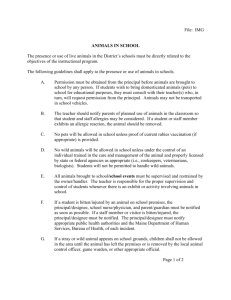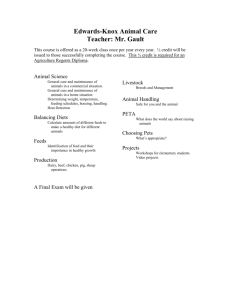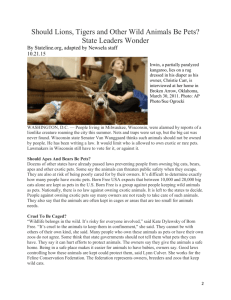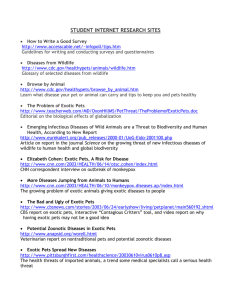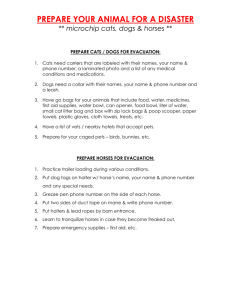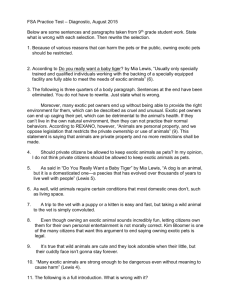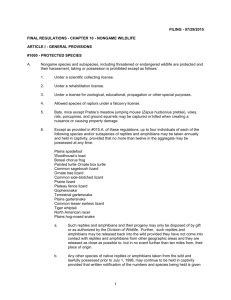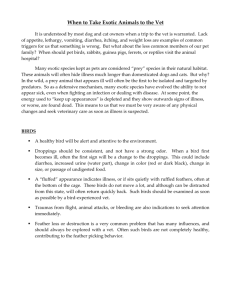Companion animals span the spectrum—from dogs and cats to
advertisement
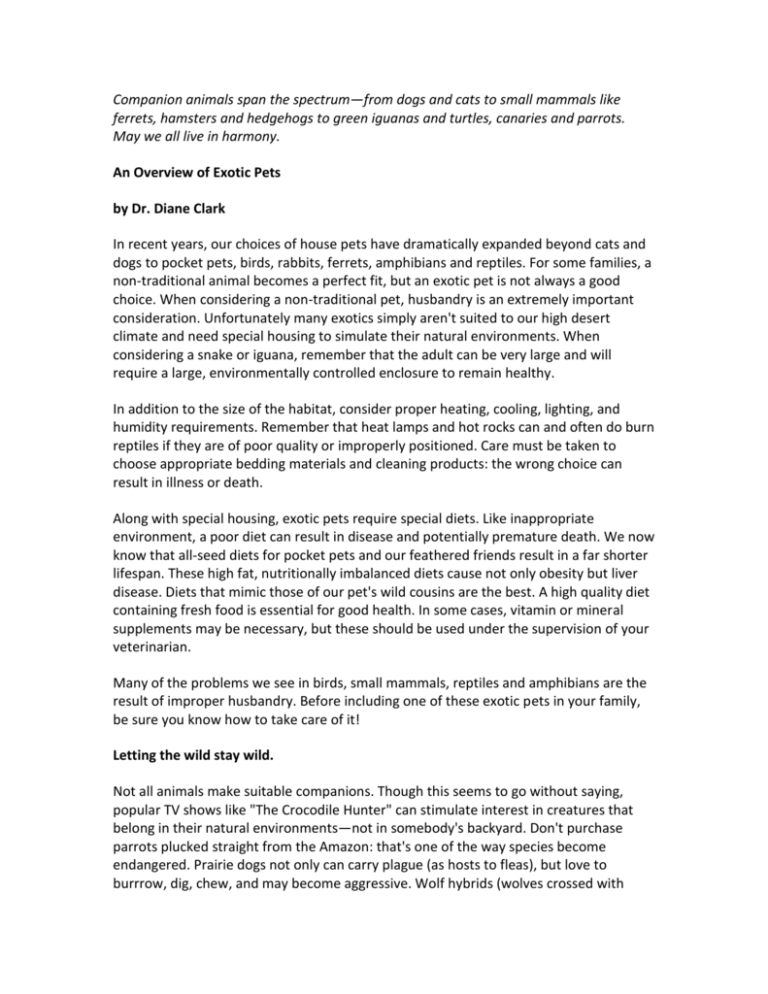
Companion animals span the spectrum—from dogs and cats to small mammals like ferrets, hamsters and hedgehogs to green iguanas and turtles, canaries and parrots. May we all live in harmony. An Overview of Exotic Pets by Dr. Diane Clark In recent years, our choices of house pets have dramatically expanded beyond cats and dogs to pocket pets, birds, rabbits, ferrets, amphibians and reptiles. For some families, a non-traditional animal becomes a perfect fit, but an exotic pet is not always a good choice. When considering a non-traditional pet, husbandry is an extremely important consideration. Unfortunately many exotics simply aren't suited to our high desert climate and need special housing to simulate their natural environments. When considering a snake or iguana, remember that the adult can be very large and will require a large, environmentally controlled enclosure to remain healthy. In addition to the size of the habitat, consider proper heating, cooling, lighting, and humidity requirements. Remember that heat lamps and hot rocks can and often do burn reptiles if they are of poor quality or improperly positioned. Care must be taken to choose appropriate bedding materials and cleaning products: the wrong choice can result in illness or death. Along with special housing, exotic pets require special diets. Like inappropriate environment, a poor diet can result in disease and potentially premature death. We now know that all-seed diets for pocket pets and our feathered friends result in a far shorter lifespan. These high fat, nutritionally imbalanced diets cause not only obesity but liver disease. Diets that mimic those of our pet's wild cousins are the best. A high quality diet containing fresh food is essential for good health. In some cases, vitamin or mineral supplements may be necessary, but these should be used under the supervision of your veterinarian. Many of the problems we see in birds, small mammals, reptiles and amphibians are the result of improper husbandry. Before including one of these exotic pets in your family, be sure you know how to take care of it! Letting the wild stay wild. Not all animals make suitable companions. Though this seems to go without saying, popular TV shows like "The Crocodile Hunter" can stimulate interest in creatures that belong in their natural environments—not in somebody's backyard. Don't purchase parrots plucked straight from the Amazon: that's one of the way species become endangered. Prairie dogs not only can carry plague (as hosts to fleas), but love to burrrow, dig, chew, and may become aggressive. Wolf hybrids (wolves crossed with dogs) suffer from conflicting instincts, since the canine family tree forked a long time ago. Characteristics that allow an animal to survive in the wild, such as venom or threeinch fangs, often make it unsuitable as a companion. Please let these wild creatures remain wild! Recommended exotics (for those who are willing to make the effort to provide the proper diet and habitat): Captive-reared freshwater fish Some captive-reared amphibians Certain captive-reared reptiles (such as the smaller, non-poisonous snakes and box turtles in season.) Captive-reared birds like budgies, canaries, finches, cockatiels, and some parrots Captive-reared small mammals such as guinea pigs, hamsters, rats, mice, rabbits and ferrets

